This post may contain affiliate links. Read my disclosure policy here.
I wrote this post 3 years ago, before a pandemic brought death and chronic illness into the daily worries of regular, healthy people. But I want to share it again now to help everyone who may face the terrifying long-term impacts of COVID-19 complications.
Chronic and invisible illnesses have always been so widespread that they affect nearly half of the population.
But now “Long COVID” and experiences of countless people not properly recovering from COVID-19 have heightened discussions about the chronic illness that I have suffered from since 1988.
I have Myalgic Encephalomyelitis (ME), often referred to as Chronic Fatigue Syndrome (CFS) or ME/CFS.
If you have never heard of ME, I encourage you to watch this TED Talk by Jennifer Brea.
Thirty Years Later – The Story I Never Told You
I have been blogging for eleven years, but I have never told you my story.
I have told you about my depression and anxiety, and about how Postpartum Depression ripped me apart when I had my first child.
I have told you about my daughter’s Stereotypical Movement Disorder.
I have told you about my son’s struggles with ADHD, anxiety/mood disorder, and sensory processing disorder.
But I haven’t told you the story of my illness…
The story of how at 14 years old my identical twin sister, Susan, and I met a fork in the road.
She got to go one way and I was forced to go the other.
Considering I am a blogger and have shared about most aspects of my life with you, it is strange that I would have kept this to myself. Because really, this story is the one that has defined my life. It is the one that has had the largest impact on who I have become.
But I was worried what you would think of me — if you would question my sanity, if clients would think I was too sick to do my job, if people would think I was weak.
Now I’ve realized it is past time that I found the courage to share my story.
I was fourteen years old.
I was only in the ninth grade, but I was already a veteran Type A, over-achiever. My perfectionism had taken root in me as early as grade school.
By January of 1988, I was well acquainted with the fear of failure and the need for approval.
I needed to get straight As. I needed to study for as many hours as I physically could. I needed to succeed.
I planned on going to university and getting a graduate degree — I just wasn’t sure in what yet. But I had to make sure I was on the path to it. I had to make sure I had perfect marks.
I remember at the time Mononucleosis was going around the school. My friend’s sister had fallen ill and was out of school for two months. I was stunned by the idea of missing two months of school. “I would kill myself if that happened to me!” I thought to myself. “That would truly be the end of my world.”
But then, as I left my last final exam and jumped into the car to head to the airport for a short trip to Quebec during semester break, I felt my throat getting sore.
I mentioned it to my parents, but I didn’t think too much about it.
There was a terrible influenza outbreak that month, but I had never had the flu before. I didn’t even know the last time I had had a fever. I wasn’t worried.
But by the time our plane landed in Quebec, there was no denying something was wrong with me. My head was dizzy and reeling. My throat was on fire. I was weak and exhausted.
The next twenty four hours were a blur of sleep, fever and nausea. We had landed in Montreal but our plans were to travel on to Quebec City.
My parents didn’t know what to do. Was it just a really bad cold? Was it influenza? Did I just need to sleep it off?
Somehow, they got me to Quebec City. When we arrived, I was so weak I needed help to stand up.
I can still remember how I felt as I tried to walk to the hotel in the underground passages that cut through the frozen city.
I felt like I was falling, collapsing under the weight of this foreign heaviness. I had never experienced any sickness so harsh and punishing. As I leaned on my parents, I began to get scared.
Something was terribly wrong.
Once they got me to the hotel room, my parents settled us in and my family began the routine of one person staying with me while the others went out and tried to enjoy their vacation.
My mom silently prayed that the illness would pass quickly and that my twin sister, or my parents, didn’t come down with it as well.
But no one else got sick. It was just me. And I could not get better.
The mysterious illness continued to ravage me. I grew sicker and weaker, with overpowering nausea and relentless diarrhea.
We were sequestered in that hotel room for three weeks before I was able to make the journey home — in a wheelchair by then.
I was pale and weak and beaten.
But it had to end soon, hadn’t it???
The short story is — it didn’t.
Every morning I woke up assuming I would finally be better. But every morning my dizzy mind, my weak body, my sick stomach, and my volatile intestines reported that, no, I was not better.
We were more than a month into the second semester at school, and I still hadn’t returned.
By Easter, my pediatrician admitted me to Children’s Hospital and they began tests to rule out diseases like Crohn’s Disease, Ulcerative Colitis, etc. The illness had attacked my GI tract so significantly they suspected inflammatory bowel disease. But there were so many flu-like symptoms that they were confused.
Once they ruled out bowel disease, I remember the psychiatrist team coming to talk to me — telling me that sometimes when we are upset “our tummies can get upset.”
I was furious. I knew what stress and worry was. Yes, I was an over achiever. Yes, I was a worrier.
But what was happening to my body was not from stress or worry. It was something far more overpowering and severe.
This illness was not created nor perpetuated in my mind.
I knew a virus or infection had done this to me and to prove it, I had an identical, just as stressed out and hard working, twin sister, who had not gotten sick and was healthy.
I was sent to the Infectious Diseases specialists at Children’s Hospital and was eventually diagnosed with Post Viral Syndrome.
The doctors told me that since I was a child, I had a good chance of recovering. They sent me home to rest, telling me that hopefully by September I would be strong enough to go back to school.
But September came and I was not better.
I began what would become the pattern for the rest of my high school years. I would attend one or two classes for a couple months, but then I would get too sick and would be back at home and in bed until the end of the semester.
My school knew what a hard working student I was. So they were always supportive and accommodating while I did my best to complete my schoolwork from home.
I was still convinced that I was going to get better and I was determined to have all the courses and marks I needed to get into the University of British Columbia, where my brother attended and my twin sister Susan was also planning to go.
But my illness got worse in my late teens. Not only was I not able to go to UBC, on my twentieth birthday I was being fit for my own wheelchair so that we could stop spending money every month on the rental one we had for years to help me when I was too weak to walk.
By this point in my life, it was getting too much.
I was done. Exhausted. Tortured by being trapped in my bed while my friends and my identical twin sister were off building their lives, attending university, having fun!
I still couldn’t believe this had happened. WHAT had happened?!? This was all some insane nightmare!
I wished I had an illness diagnosis that would give me an “end date.” I just couldn’t imagine sixty years living in my bed, sick and alone. It was terrifying. I wanted answers.
At least if I had an illness or disease that doctors understood — even a terrible one — I would have answers!
People would understand what was wrong with me — I would understand what was wrong with me!
This is My Life
It has been almost thirty years since that virus hit me, singling me out from my family and friends and altering my life forever.
I am still sick, living with this bizarre invisible illness. But I’ve managed to create a wonderful life… despite my health problems.
While my original diagnosis in 1988 was Post Viral Syndrome, over the last three decades the medical and research community have continually been renaming and reevaluating their diagnostic criteria for chronic illnesses like mine, including chronic illness that began with an acute viral infection, as mine did.
There are five competing names currently in use. In Canada, the most commonly used names for this disease are Myalgic Encephalomyelitis, abbreviated as ME, and Chronic Fatigue Syndrome, abbreviated as CFS. Quite often, you will see the illness referred to as ME/CFS or CFS/ME.
After decades of research, experts now believe that something called central sensitization is at least partially to blame for ME/CFS. “Central” refers to the central nervous system, which is made up of your brain and the nerves of the spinal cord. “Sensitization” means that it’s become hyper-sensitive.
They also believe central sensitization is what makes ME/CFS so similar to fibromyalgia, which shares many of the same features.
The CDC says the first credible evidence of a biological basis for this condition came in 2006, when 20 researchers from different specialties each linked the illness with genes involved in the sympathetic nervous system and the HPA axis. These genes control how your body responds to things like injuries and stress. source: VeryWell — What is Chronic Fatigue Syndrome
One of the other common names for the illness, CFIDS — Chronic Fatigue and Immune Dysfunction Syndrome, refers to the dysfunction of the immune system.
It appears that a large percentage of sufferers became sick with an acute viral onset, leading many researchers to hypothesize that some cases are a result of abnormal reaction to infectious agents such as enteroviruses, human herpesvirus 6 (HHV-6), and Lyme disease.
Although studies haven’t been able to conclusively link the illness with any specific viruses, multiple studies do lead to the theory that sufferers may have chronically active immune systems — essentially our bodies think we are fighting off infections whether we are or not.
The misnomer of “Chronic Fatigue Syndrome” has been so insulting and damaging to those of us affected by this devastating illness, that I will rarely use it. It is like calling pneumonia Chronic Coughing Syndrome.
I cannot even begin to count the times I have had people say, “Chronic Fatigue Syndrome?!? I must have that. I am tired ALL the time!”
I. Can’t. Even.
And so I don’t. I rarely mention that I am ill and keep my struggles to myself. My family and close friends know what I go through, but that is all.
If I do have to admit that I am sick, I will simply say that I have an immune disorder.
Mercifully, over the years I have gotten stronger and healthier. I have done things I never thought I would have been able to.
I got married and had kids. I have traveled and worked. I have lived a good life despite this frustratingly weak body of mine.
I have learned to live within my limitations, budgeting my energy and time, dealing with pain and exhaustion, and making due with “less.”
Learning to Thrive Despite Chronic Illness
At twenty years old, I was desperate.
I was young — I was supposed to be starting my life as an adult. I was not supposed to be stuck inside a sick, useless body.
So I become obsessed with “getting better.” I was desperate for a cure. I had promised myself that if I didn’t get better, then I would kill myself.
But eventually I had to stop driving myself mad.
I realized that the only option I really had, other than going crazy and killing myself, was to accept my situation.
I decided I had to find gratitude and joy where I was, whether or not I was suffering.
I had to stop focusing on my illness as something I needed to be healed from and instead accept it as “my handicap” — limitations that I had to learn to live with.
It was that change of perspective that helped me move on and have a fruitful, peaceful life.
By continually focusing on what I DID have, rather than on what I did not have, I released myself from so much frustration and pain.
Please don’t get me wrong — I still had, and continue to have, moments of anger and disappointment that I don’t get to do all the things I want to do.
I haven’t gone for a run or “worked out” in thirty years!
For every day I go out in the world and “pretend” like I am normal, I have to pay with days of pain, nausea, and dizziness.
I miss out on so much of my children’s lives because I am in bed, lying in a dark room, too weak or dizzy to even cope with daylight, let alone getting up and playing or going to the park with them.
But, I budget my time and my energy. I make sacrifices so I can splurge a few times a week. We all make do with “less of me.”
Thankfully, I have my mom and my twin sister who cover for me constantly.
Honestly, I would never have even attempted getting pregnant and having children without their support. I simply cannot imagine living this life without my twin sister, Susan, and our incredible, selfless mother.
Together, we run our business, raise our kids, and manage our busy lives.
It is team work.
They have propped me up and helped me walk since this all began in Quebec City so many years ago.
And I am so very, very grateful.
Tips for Living with Chronic Illness
I have lived with my chronic illness for three decades. It is never easy, but here are some of the things I do to make my life fabulous DESPITE my many physical limitations.
1. Assemble a Supportive Medical Team
Finding supportive, knowledgeable doctors and therapists can be challenging, to say the least. But don’t give up. There are resources and good people out there who can help you get the treatments you need.
Also, remember that all of your needs may not be met by just one doctor. You may need a number of specialists and/or therapists to address your different issues and symptoms.
If you are too sick and overwhelmed to oversee your medical care, consider reaching out to someone in your life to be an advocate for you and to help you as you deal with appointments and insurance companies.
2. Allow Yourself to Grieve
Illness has ROBBED you of many things.
It is okay to be angry, to rage against the hand you have been dealt.
You need to grieve what you have lost — and that can be a long process that happens in different stages over the months and years of your illness.
But eventually, you will be able to look beyond the losses and the pain, and find pieces of your life for which you can sincerely be grateful.
There are so many resources and experts available now online. I wish I had had the internet when I got sick!
One helpful website for all kinds of medical conditions is Verywell. They have a robust and thorough section on CFS and Fibromyalgia, including this post on processing the losses from chronic illness, Living With Someone Who Has Fibromyalgia or CFS.
3. Practice Gratitude
When I was home-bound in my late teens and early twenties, people would ask me why I wasn’t depressed. (I didn’t experience clinical depression until I got pregnant with my first child.)
My answer was that every day I watched the world news and I recognized that my suffering was nothing compared to what so many in the world were enduring.
Yes, I got discouraged, desperate and I even wanted to die, but eventually I would find my way out by practicing gratitude — tangibly focusing on what I had and not on what I did not have.
PLEASE REMEMBER: The practice of gratitude CANNOT heal clinical depression — nor will it save you from anger, frustration, and grief. Our emotions and our losses are real and we must accept and process them.
Since the birth of my first child, I have been medicated for depression and anxiety. Without those medications, I would not be here.
All the gratitude and meditation in the world cannot fix what is chemically wrong.
Please take depression and anxiety seriously and do as your doctors recommend.
4. Make a Plan that Works for You
I can’t live a “normal” life. I can’t go to bed at 11pm, get up at 6am, take the kids to school, go to the office, come home and make dinner, do homework with the kids, have sex with my mate, and go to bed at 11pm, ready to start it all over again.
I might make it two or three days — and then I would die, or crawl into my car and curl up in the backseat by ten am.
So, I have strategically planned a life that is not normal, one that works within my energy and health limitations.
I have been blessed to be able to do so — and I have had family around me that has allowed me the freedom to look after my health.
I understand that it is much easier to say “work within your limitations” than it is to actually have a life that allows you to do that.
But, as best as you can, try to adjust and tweak your life so you can make it work for you and your illness.
(I will go into more detail about how I manage my life in Post 4: How to Work while Living with Chronic Illness.)
For example, I have always been much sicker in the mornings. Before noon, I am usually quite nauseated and misearable. I don’t have the luxury of downing a cup of coffee and pushing through.
So I schedule my work for afternoons and evenings, when I generally feel better.
5. Save Those Spoons
I am not sure who started the spoon theory — counting and saving “spoons” as units of energy/health.
(UPDATE: My friend Zina referred me to the originator of the spoon theory. Read her article here.)
Personally, I have always thought of it as living on a very tight budget — and I regularly have to steal from Peter to pay Paul!
But however you write your analogy, the only way to survive lengthy periods of illness is to have “splurges” you can look forward to and save up for.
I have traveled many times, despite my illness. Before I was married, my parents would take me in my wheelchair — because if I was going to have to be sick, I might as well be sick in a new, beautiful, or fun place.
Even now when I go on trip, I know I will have to deal with the repercussions of it. But I think those days are spoons well spent.
Yes, I do have to say no to most trips I am offered as a blogger. It is hard to look at the feeds of my friends and know that if I were “normal” I could be on those trips too.
But, I acknowledge those losses, deal with the grief and frustration, and then focus on the things that I am able to do.
If you’re struggling with an invisible illness, you may find this other post helpful… How to Explain Your Chronic Illness.
Pin it for Later
Written by Janice Croze, co-founder of 5 Minutes for Mom
Talk with me: @5minutesformom and Facebook.com/5minutesformom
Pin with me at pinterest.com/5minutesformom
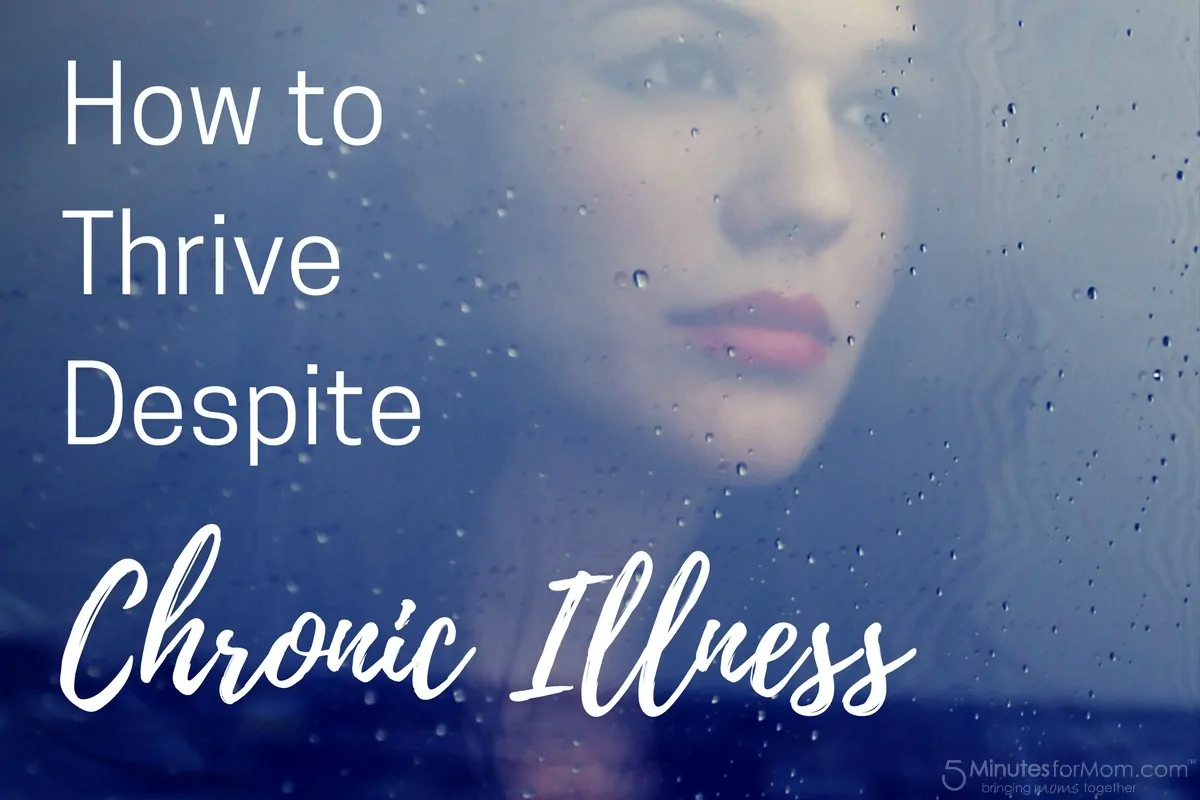
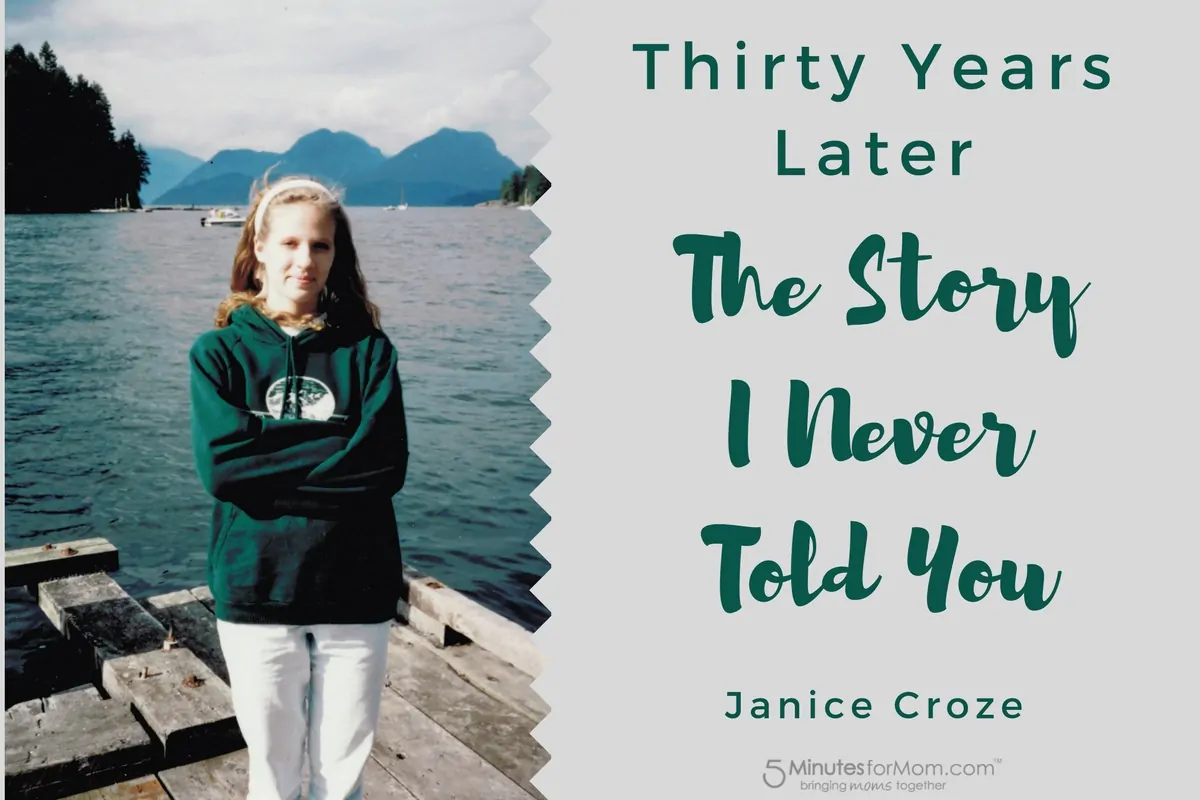
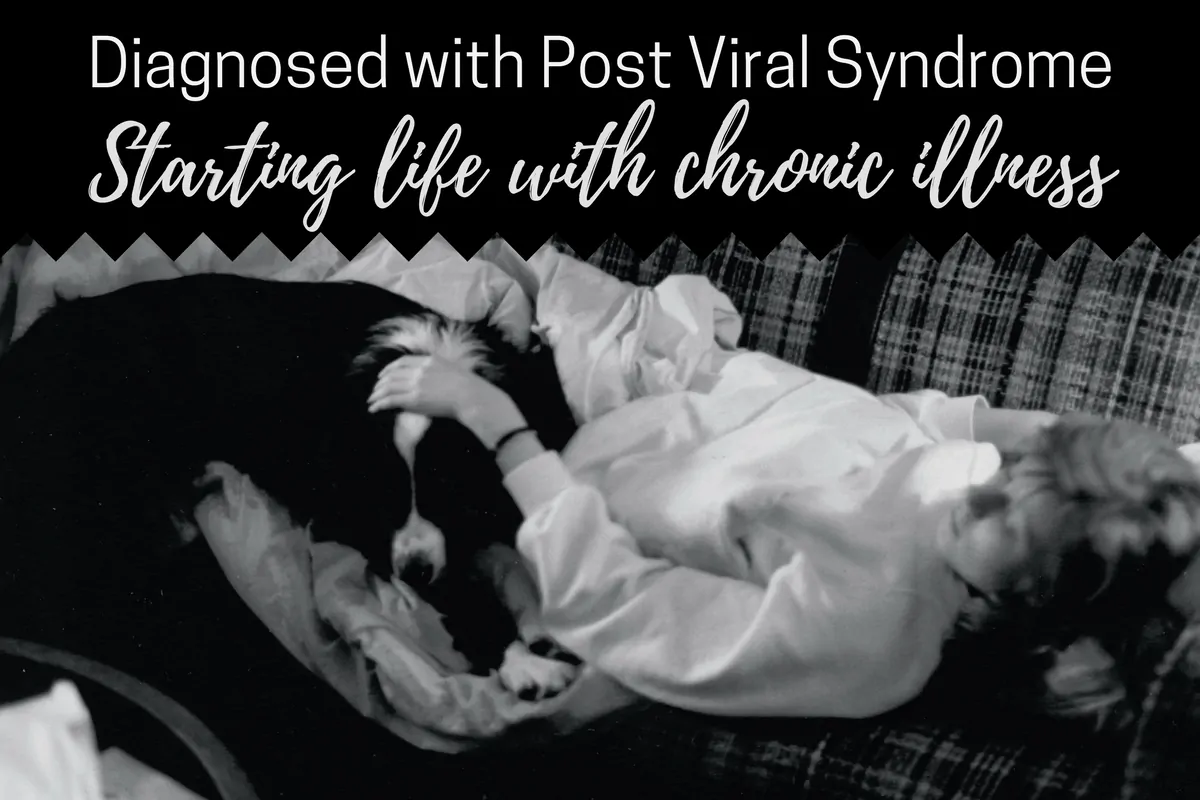
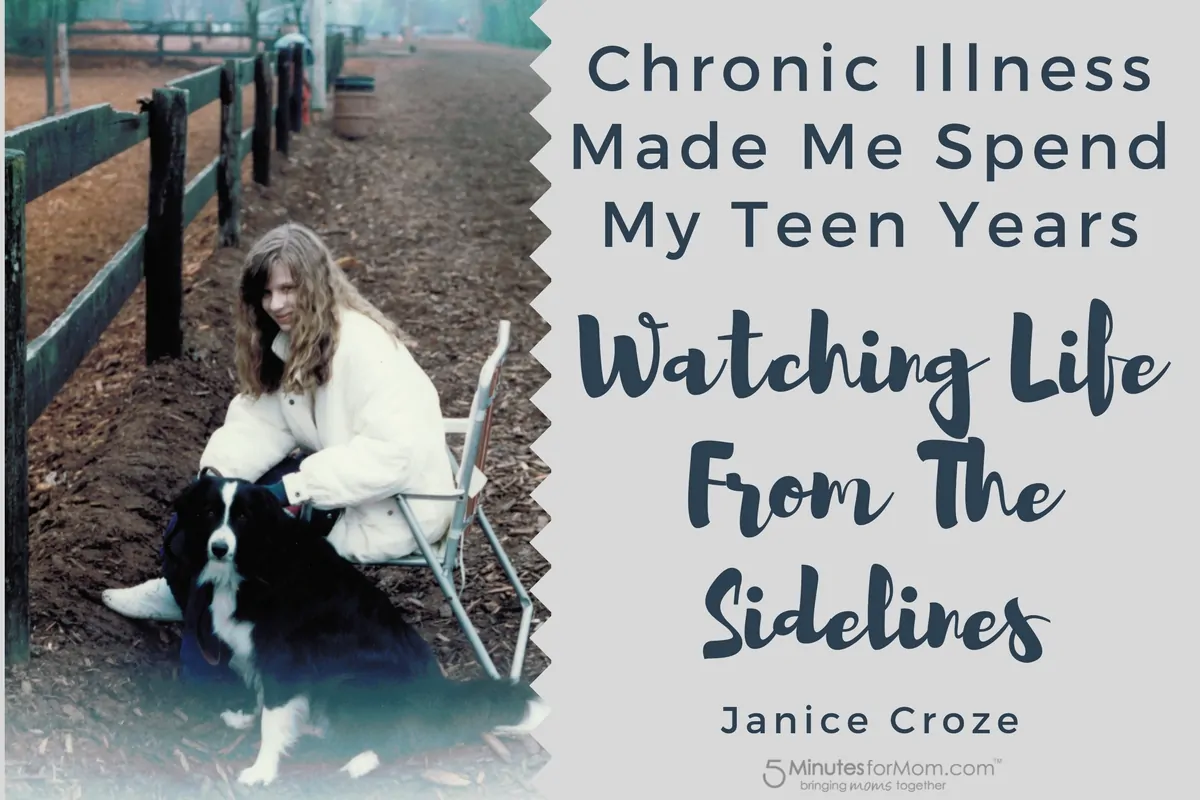
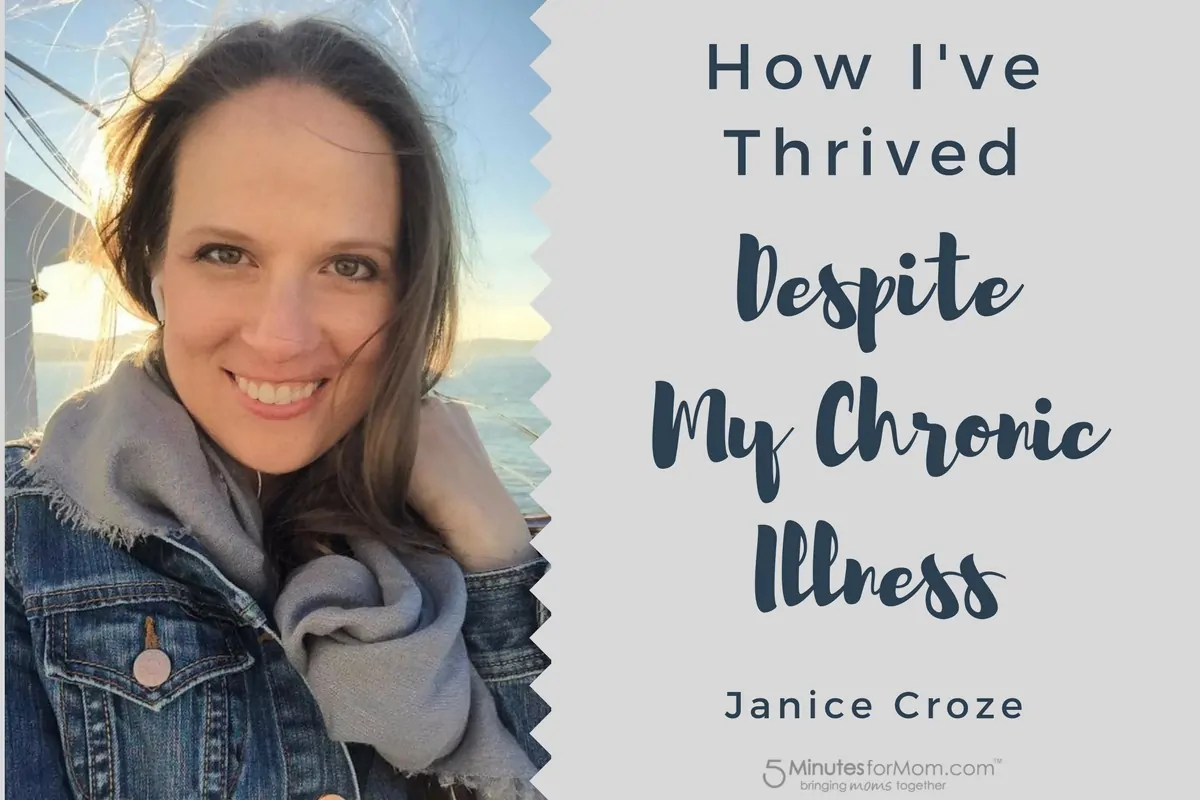
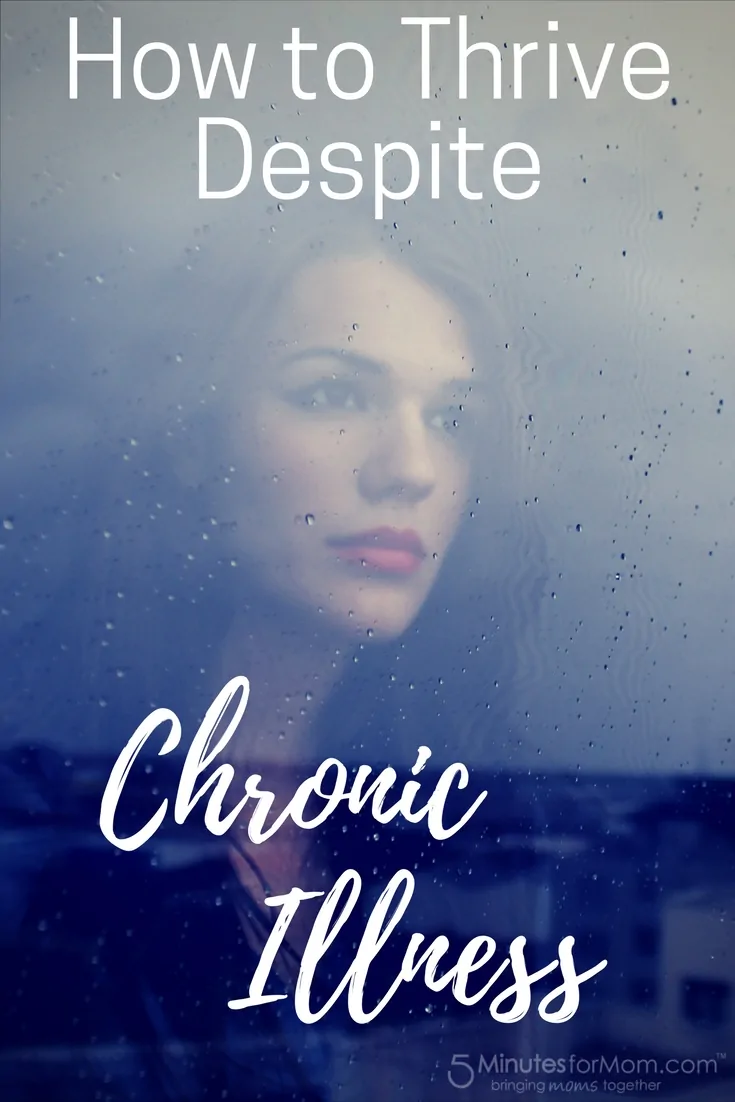
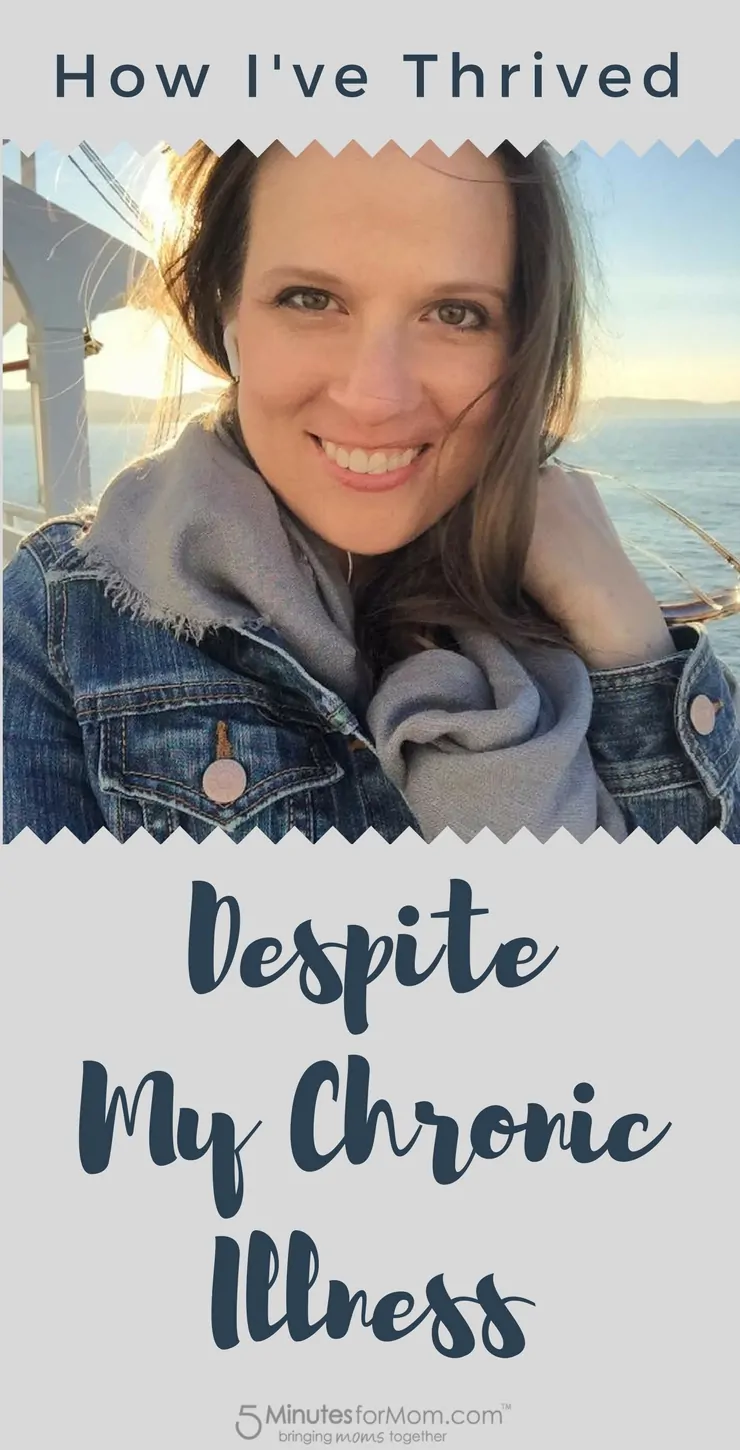









Kelly Watson says
You are such an inspiration! Thank you for sharing your story!
Ava Meena says
I have fibromyalgia and lupus, and reading this post felt like finding water after days of wandering the desert. Thank you for writing this! I’ve been struggling with my pain and limitations for a year and a half and I’ve reached the point where I’m so frustrated that the doctors can’t do more for me and make my life normal. These were exactly the words and perspective I needed to hear.
Elizabeth Edwards says
Janice, I remember BlogHer conferences where you were dividing and conquering all your invites to lunch and brand meetings, seemingly rushing everywhere, but I also remember seeing you sitting down after a session in the lobby with a group of people, and even then when you were probably in need of rest, you were smiling and laughing and not showing at all how you must have felt inside.
It was courageous of you to post this, and I understood it personally because my sister in law IS you. Since her early 20s she’s told doctors she feels like she has the flu all the time, it took until her 40s to finally get the proper medication.
Previous doctors had told her to get some exercise, try low impact aerobics, try yoga, because it must have been stress that was making her sick, nothing was really “wrong”. Until she had a viral load test and sure enough, she carries the viral load of someone who has the flu, all the time.
Her days are like yours, she gets out of bed just long enough to walk her son to the bus stop up the street, then goes back to bed until around noon. She filed for disability and fought the government for years until they approved it.
Sending you a big virtual hug for sharing your story and please remember, in the words of singer Nikki Costa, “Everybody’s Got Their Something.” Or as my Grandpa Sullivan used to say, “It takes all kinds to make a world.” Sick or well or in-between, you are a good person to have in the world 🙂 xoxo
Bonnie Way says
Oh Janice, this post made me cry! I’m so sorry to hear you are dealing with this. You are so strong and amazing! Thanks for sharing your story… I’m sure it will help many others who are going through this and also hide it for fear if what others will say. Bless you. 🙂
Janice says
Oh you sweet girl Bonnie! Thank you for reading and commenting! I do pray it helps others and man, I feel liberated just finally putting it out there!
Andrea says
very helpful! I had a brain bleed at 38, am since then of reduced mobility, am using a walker and have a speech disorder, so my illness is quite visible so I know a bit about where you are coming from and I applaud your bvravery and YES, gratitude is so very important!
Janice says
Oh gosh Andrea — how terrifying that must have been! It must be so frustrating for you to have had your life so drastically altered at such a young age! HUGS!!!! I applaud YOU for your bravery and your ability to practice gratitude!!! My father died at 56 from a brain aneurysm and his father died at 42 of one. (We are Finns and all of his relatives died early from aneurysms. His only sibling, my aunt, was tested just after he died and they found one and operated in time. My siblings and I all get regular testing, but we are all aneurysm free at this point.) I can’t imagine how difficult it must be to live with those limitations, but yes you are right. It is so important to be grateful! My father died in my mother’s arms as the ambulance pulled up in the street. HUGS to you my friend!
JAlexandria says
Thank you so much for this moving post. I also suffer from a chronic illness which was finally diagnosed following the birth of baby number 4. I am trying to be positive and make the most of my life -living overseas. I have a really supportive and understanding hubby. Though I do not like talking about my condition I know it is always there. For me the key is to relax and get sufficient rest and me-time. I have recently discovered meditation which helps me sleep chases away anxieties, and makes me feel just a little bit more energised on a day when I feel unable to do anything.
Janice says
Thanks for reading and commenting! 🙂 I am glad you finally have a diagnosis — not knowing what is going on is so hard. But I know that getting the diagnosis doesn’t take away the heartache and struggle of living out your days with chronic illness. What a blessing that you have a supportive hubby!!!!! Give me a huge high five from me! 🙂 Meditation is so great. It really helps me too — but I have to lie down in bed when I am meditating or resting if I can. I find I need to get my head down to the level of my heart to help the dizziness. So my meditating looks like I am napping. lol But really, I am not asleep. I am just clearing my mind of all the chaos while I try to clear my head of all the dizzyness. 😉
s says
You’re a strong woman despite your illness. Many people I know need to read your story – maybe they wouldn’t feel so alone. One thing I took from your writing that I found comfort in is, “Yes, I do have to say no to most trips I am offered as a blogger. It is hard to look at the feeds of my friends and know that if I were “normal” I could be on those trips too.” – I too am a blogger and can’t do the trips – I find it hard to look at feeds as well for the same reason as you, all because I am the main caregiver of my 33yo son who has spastic quadriplegia CP. So, I just reason with myself all the time – saying to myself, “this is where I’m suppose to be right now.” I nearly lost him several times over the past year and a half (on life support 4 times for pneumonia and allergic reactions to antibiotics) – I’ll take him over the trips any day.
Janice says
Thank you for sharing! I do hope my story helps others not feel so alone. We humans need empathy so badly. It is amazing how much it helps to know that others are walking similar paths. I am so glad your son has made it through such a rough year! I can’t imagine how difficult that must be for all of you! He is blessed to have such a loving mother — and you are blessed to have him too I am sure! 🙂 HUGS to you and all you do for your family. What is your blog? I would love to visit it. 🙂
Doris Calvert says
Oh you are an angel, thank you for sharing, been sick for years with weird things, so nuch so I have lost the ability to walk a short way, I am tired and I use to be a morning person I now fell best late afternoon and evening, I now have A Fib and a few other things they can’t seem to tie together my doctor quit and my specialists were all tired of our health care system so I have no one but my husband, no one seems to understand, tears rolled down my face reading this as I realized I am not alone. Sorry you are going through this but glad you find a way to make it work for you and have a wonderful family, my sister does not understand at all, so yes you are fortunate that way mine make me feel like a burden
Janice says
Oh gosh Doris – I am so sorry! My heart breaks for you! Life can be so hard and lonely. I wish I could wish away your pain. Thank you for sharing here with me — I am sending you love and prayers! HUGS!!!
ivy pluchinsky says
I have Rheumatoid Arthritis and have had it since I was 3 years old and I just wanted to thank you for making this post! I am so glad I read it! I was very inspired by this post and can relate to some of the things you said. You are beyond brave for sharing this!
Janice says
Oh thank you Ivy for your kind words! RA can be so debilitating. I am so sorry you have to endure that pain! Thank you for sharing here with us! HUGS
Michele McGraw says
Janice, I am so surprised by this because I would never have guessed that you were suffering. I have had chronic pancreatitis for 15 years and it’s only getting worse. I loved how you changed your perspective. I need to do that. It’s like a light when on when I read that in your post. I’m always focusing on what I can’t do and what I miss instead of focusing on what I can do,
Thank you for sharing your story. It’s already made a difference for me.
Janice says
Oh Michele – I am so sorry you have had to deal with such a long term and terrible disease!
So often I have to remind myself to change my focus. I get frustrated with my limitations and start to feel sorry for myself. So then I have to firmly remind myself of all the good and refocus my attention on my many blessings.
So don’t get down on yourself for slipping into frustration and negative feelings – it is totally natural. But wow – what a relief it is to allow yourself to let go of what you can’t do and embrace what you can!
Chrissy says
Thank you for sharing your story. It’s incredibly brave of you to do so and my heart aches for what you’ve endured but cheers for the bravery in which you have overcome!
Janice says
Oh thank you Chrissy! Gosh, considering how many people face so much more pain than I have had to, I feel embarrassed at people calling me brave. But thank you for your kind words! 🙂
Jeanine says
As someone who suffers with a chronic illness your story inspired me and I applaud your courage and openness. Many blessings sent your way and continue to live not focused on your illness but as you said , in gratitude. You have encouraged me to do the same.
Janice says
Thank you for your feedback Jeanine! I am so sorry you have to live with chronic illness but I am glad you are here on this planet, blessing those whom you meet – both on and offline! Sending love and blessings right back at you! 🙂
Tonya says
Thank you for writing this. I have had a invisible illness my whole life. My family never supported me. They brushed me off as being crazy, stupid, and lazy. After my sibling was born, I was the invisible child. I had loving and supported grandparents that saved me.
Now that I’m older and my kids are grown I have a hand full of chronic diseases I have been battling for a while. The most recent was cognitive problems that i could not ignore. My docter sent me for a bunch of tests which came back with a diagnosis of horror. Not only did I have a small brain tumor I also have ‘white matter diease’ it is were my neutrons don’t connect to my brain. So iam loosing my mind slowing. You usually see this in older adults. And I’m in my 40’s.
So my next battle is fighting disability and taking care of my grandson.
I look forward to reading more of your blogs. Thanks for inspiring me to write as well.
Tonya
Janice says
Oh my goodness Tonya! I am so sorry for what you have had to endure — and the battles you are still fighting! To have a lack of support from family must be so heartbreaking. I am just so sorry! I am sending you all the cyber hugs, love and support I can!!!
Crissy Page says
Wow, what a story. I am so proud of you for sharing something so personal and intimate. I know that there are probably so many people reading who feel empowered by your bravery.
I can’t relate to your personal struggle, but I also deal with an affliction that I keep completely private. I’m not sure if I’ll ever share it publicly, but, just knowing that other people are carrying similar burdens does help.
Thank you for sharing!
Janice says
Thanks Crissy! I am so sorry you have to deal with an ongoing health issue. Isn’t it strange how we humans need to know that others understand our trials and are walking alongside us?
If you ever want to talk offline, just holler! HUGS!!!
Smellyann says
Well, Janice, you had me snowed. I had no idea you were dealing with much of the same illness and consequences as I am. I have been diagnosed with Lyme and Fibromyalgia in recent years, after dealing with Mono in my late teens. I feel like, as you, that was the onset for many years of poor health. And yet you have seemed, through this blog, to have it all together in so many ways. I’m sorry that I didn’t know, but I am grateful to you for sharing your story and this post. Thank you.
Janice says
Really, I am the one who should apologize! lol I don’t want people to think I have it all together just because I post pretty pictures and edited articles. But that is the nature of the social media beast, I suppose.
I am so sorry you have had to endure so many years of illness! It really is brutal to have it start when you are so young. 🙁
Thank you so much for sharing your story!!! HUGS
Smellyann says
Don’t apologize!! You shared when you were ready. <3
Amy Allen Clark says
Thank you so much for sharing your story! You are helping so many, I just know it!! xoxo
Janice says
Thank you Amy! You are a huge inspiration to me — and you have been for over eleven years! When you shared your story of your illness in these recent years, I was so sad that you were going to have deal with chronic illness! But, being a human with our constant need for empathy, it helped me so much that you understood my pain and what it was like to be a sick, working mom. Of course, I wish you didn’t have to learn from experience! But it is inspiring and comforting to know you are saving and hoarding spoons and still rocking your life! HUGS
Jo-Lynne Shane says
Wow, Janice. I knew a little about this from Susan, but I had no idea how severe and debilitating it still is. It’s brave of you to share your story. I am sure many people out there need to hear it. xoxo
Janice says
Thank you Jo-Lynne! I feel so relieved that I have finally shared about it. I was conflicted about not writing about. I knew it could help others, but I was scared. Now, I am just so glad I have done it and I really hope it will help not only people who have chronic illness, but the people in their lives!
Désirée Fawn says
You’re so strong for sharing this and for battling it all these years. You’re amazing! I think you’re going to help a lot of people through your story <3 Thank you.
Janice says
Thank you Desiree! I really do hope it helps others. The human experience demands empathy. It is remarkable how badly we need to know that we are understood and that others have faced similar challenges. Somehow, knowing we are not alone can carry us further than anything else! HUGS!
Hayley says
Holy cow! Your perseverance and bravery!
Janice says
Thank you Hayley! I don’t see myself as brave at all. I am actually a fearful person and a wimp too! But life doesn’t really give us a choice sometimes — we just have to meet the day and make it through. I learned decades ago, that when I look too far ahead, then I crumble. So I try very hard to focus on making it through each day. But, I mess that up all the time too and start worrying about the future – what if I get too sick and can’t pay my bills and look after my kids, what happens when my mom gets sick and needs me to look after her, etc. But, then I have to force myself to refocus and remember that I made it through this far, I am sure I can do it another 2-3 decades. 😉
Katja says
I had no idea. You are such a warrior, and I can not even imagine what you have gone through. You are an inspiration and beacon of hope for many of us who battle with our own lives.
Janice says
Oh Katja – you are too kind! Thank you! As for inspirations, you and your work are an inspiration to me — and you are a Finn too!